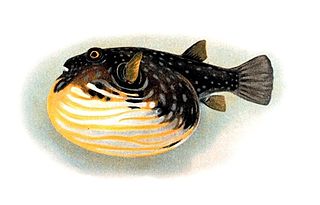
A carnivore, or meat-eater, is an animal or plant whose nutrition and energy requirements are met by consumption of animal tissues as food, whether through predation or scavenging.
John Paizs is a Canadian film director, writer and actor. He is most noted for his debut feature film, Crime Wave, which was presented at the 1985 Toronto International Film Festival. He was the male lead and also wrote and directed the film.

Glengarry Glen Ross is a 1992 American tragedy film directed by James Foley and written by David Mamet, based on his 1984 Pulitzer Prize-winning play. The film depicts two days in the lives of four real-estate salesmen and their increasing desperation when the corporate office sends a motivational trainer with the threat that all but the top two salesmen will be fired within one week.
Thrifty Foods is a chain of supermarkets located in British Columbia, Canada.

Sarracenia purpurea, the purple pitcher plant, northern pitcher plant, turtle socks, or side-saddle flower, is a carnivorous plant in the family Sarraceniaceae.
George Weston Limited, often referred to as Weston or Weston's, is a Canadian holding company. Founded by George Weston in 1882, the company today consists of the Choice Properties real estate investment trust and Loblaw Companies Limited, Canada's largest supermarket retailer, in which it maintains a controlling interest. The company is majority owned by Wittington Investments, Ltd Canada, a holding company that the Weston family are the controlling share holders in. Retail brands include President's Choice, No Name and Joe Fresh. The former Weston Bakeries division, which owned the brands Wonder, Country Harvest, D'Italiano, Ready Bake and Gadoua, was sold off to FGF Brands in 2022.
Scott's Food & Pharmacy was a supermarket chain in the Fort Wayne, Indiana, market. The company was once a wholly owned subsidiary of SuperValu, but was acquired by The Kroger Co. in 2007. At the time of its purchase by Kroger, the chain had 18 locations. By late 2014, that number had dwindled to one location as a result of stores being closed or rebranded under the Kroger banner. However, the company shut down in 2016, due to the final store rebranding to Kroger.

"Cheeseburger in Paradise" is a song written and performed by American popular music singer Jimmy Buffett. It appeared on his 1978 album Son of a Son of a Sailor and was released as a single, reaching No. 32 on the Billboard Hot 100. "Cheeseburger in Paradise" became one of Buffett's signature songs, and was selected as the first track on his greatest hits album Songs You Know by Heart.

Cactus Club Cafe is a Canadian-owned chain of premium casual restaurants that originated in North Vancouver, British Columbia. The chain has since expanded to 31 locations throughout Canada, with other locations throughout British Columbia, Alberta, Saskatchewan, and Ontario.
Crime Wave, also known as The Big Crime Wave, is a 1985 Canadian independent surrealist comedy film written, produced and directed by Winnipeg-based filmmaker John Paizs.

Manchu Wok Inc. is a Canadian fast food restaurant chain that specializes in Chinese fusion cuisine. The brand operates 57 locations across eight Canadian provinces and 13 in the US. The chain operates in shopping malls, airports and some US military installations. It is owned by Canada-based MTY Food Group.

The spotted gar is a freshwater fish native to North America that has an abundance of dark spots on its head, fins, and dart-like body. Spotted gar have an elongated mouth with many needle-like teeth to catch other fish and crustaceans. It is one of the smallest of the seven species of gar found in North America, growing 2–3 ft in length and weighing 4–6 lb (1.8–2.7 kg) typically. Gars have diamond-shaped, thick, enamel (ganoid) scales. The name Lepisosteus is Greek for "bony scale".
"Traveling Salesmen" is the thirteenth episode of the third season of the American version of The Office and the show's 41st overall. The episode was written by Michael Schur, Lee Eisenberg, and Gene Stupnitsky, and it was directed by series creator and executive producer Greg Daniels. It first aired on January 11, 2007 in the United States on NBC.

Euglandina rosea, the rosy wolfsnail or cannibal snail, is a species of medium-sized to large predatory air-breathing land snail, a carnivorous terrestrial pulmonate gastropod mollusk in the family Spiraxidae.
A consumer in a food chain is a living creature that eats organisms from a different population. A consumer is a heterotroph and a producer is an autotroph. Like sea angels, they take in organic moles by consuming other organisms, so they are commonly called consumers. Heterotrophs can be classified by what they usually eat as herbivores, carnivores, omnivores, or decomposers. On the other hand, autotrophs are organisms that use energy directly from the sun or from chemical bonds. Autotrophs are vital to all ecosystems because all organisms need organic molecules, and only autotrophs can produce them from inorganic compounds. Autotrophs are classified as either photoautotrophs or chemoautotrophs.

The 9th Toronto International Film Festival (TIFF) took place in Toronto, Ontario, Canada between September 6 and September 15, 1984. The festival introduced Perspective Canada programme, devoted to Canadian films. The festival screened 225 feature films and more than half of them were Canadian films.

Poisonous fish are fish that are poisonous to eat. They contain toxins which are not destroyed by the digestive systems of animals that eat the fish. Venomous fish also contain toxins, but do not necessarily cause poisoning if they are eaten, since the digestive system often destroys their venom.

Hero Certified Burgers is a Canadian restaurant chain franchise that sells hamburgers and other quick service restaurant fare. It is based in Toronto, Ontario, Canada, and was founded in 2004. It had almost 60 locations as of March 2017, and opened its first store in the United States in 2015 in Elmwood Village, Buffalo, New York. The Buffalo location closed at the end of 2016.
A Roadside Inn is a 1906 French silent trick film by Georges Méliès. It was sold by Méliès's Star Film Company and is numbered 843–845 in its catalogues.
The Three Worlds of Nick is a Canadian anthology film, comprising John Paizs's short film trilogy of Springtime in Greenland (1981), Oak, Ivy, and Other Dead Elms (1982) and The International Style (1983). The films all starred Paizs as Nick, a "quiet man" who never speaks in any of the three films, but is placed in very different scenarios which each represent a different genre of film; Paizs described the character as "a Buster Keaton-like character in the sound era", and named him after Ernest Hemingway's recurring semi-autobiographical Nick Adams character.











